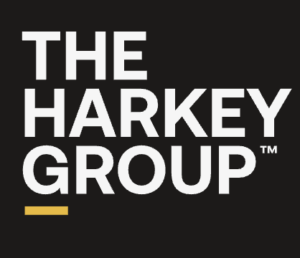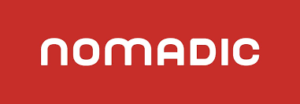Behavioral science practices that uncover consumer truths — Leigh Caldwell // Irrational Agency
Leigh Caldwell
Irrational Agency

- Part 1 Behavioral science practices that uncover consumer truths — Leigh Caldwell // Irrational Agency
- Part 2Major consumer behavior trends in a post-covid world — Leigh Caldwell // Irrational Agency
Show Notes
-
02:08What does a mathematician have to do with behavioral science?Theres a human at both ends of every technology, and the numbers side to understanding how humans make buying decisions.
-
05:15What every marketer should know about human behaviorBefore, two known systems governed how we behave or make buying decisions. System two is the rational, logical mind, where we work out the rules for something and determine the correct answer for the system. One is the fast, emotional, unconscious side of the brain that drives much of our behavior. Know what the third is?
-
08:13Understanding the systems of decisionSystem one is our automatic responses to stimuli. System two allows us to stop and work out the correct response according to the rules. And system three is where you tell yourself a story of a happy ending to convince yourself to make a decision.
-
10:58What is the gap in brand storytelling?Your brand does not exist in a vacuum. Whatever category you operate in, theres already a narrative around it, and its your job to find how your brands story fits into that.
-
14:13Can brands make human beings see themselves in a different light to defeat negative stories?The brain has this compelling and critical capability of anticipated reward, and rewiring that story is central to people having a better life.
Quotes
-
"I started in technology and software development and realized there was always a human being on the other side of everything I did. And I had to understand those human beings better to do a better job and create businesses that would be successful." - Leigh Caldwell
-
"Social systems theory, as you know, talks about systems one and two. System two is the rational, logical mind, where we work out the rules for something and determine the correct answer for the system. One is the fast, emotional, unconscious side of the brain that drives much of our behavior." - Leigh Caldwell
-
"One of the things that we have started to realize over the last few years is that they're, these two parts of the brain only paint a part of the picture, there's a third side to how humans make decisions and what we call system three. And it sits in between systems one and two. So it's more conscious than system one. But it's much more emotional and less logical than system two. And what system three years is the storytelling or the imaginative part of the brain." - Leigh Caldwell
-
"Often, when making decisions, we're not just reacting unconsciously. But also, we're not necessarily following logical rules; what we're doing is we imagine the possible outcomes or the possible futures that will happen when we make a choice." - Leigh Caldwell
-
"This system three is where much of our richness of life plays out is very much present in media as what operates when we read a book or watch a movie. And it's also essential for brands." - Leigh Caldwell
-
"System one is our elementary, unconscious emotional reactions, and it is about automatic responses to stimuli. A classic example of system one is where you touch a hot stove, and your body makes you jump back." - Leigh Caldwell
-
"System two is where we have time to stop and work out the correct response according to rules. So, when you're learning to drive, you're using system two because you follow these rules." - Leigh Caldwell
-
"In the branding world, you will have reactions to, let's say, the Coca-Cola brand. It creates emotions in you that you don't have to think about, and they're very much automatic. Whereas if you decide to invest money in your business, you will use system two because you will work out the ROI of this investment. What's the what are the alternatives? Which one will give me the best return waited by risk?" - Leigh Caldwell
-
There is this third way where something new has been offered to you. It could be a new brand, product, or category you haven't experienced before. You can't rely on habit because you have yet to learn these reactive behaviors in this new area. But you also can't rely on rules because there may not be any rules. You have to tell yourself a story about why you should buy this product. Do I will? It makes me happy, and the story you tell yourself essentially shows how that product will interact with your life. If it has a happy ending, you will probably buy the product. And that's system three." - Leigh Caldwell
-
"The gap in brand storytelling the issue with it is, it's one thing for you as a brand to want to tell a story, right? Like you're the megaphone, telling everyone how it will be. Yeah. But if you want to know, is that story going to land? Is that story going to work? Are people going to respond to that story? You have to listen. You have to listen to the stories that customers are already telling." - Leigh Caldwell
-
"You only have permission to tell a story compatible with that narrative. And you have to go out and find out the stories already out there. And then, you can find a space where your story fits and add something or amplify something already there. But you can't just go out in-depth without listening to what people are saying." - Leigh Caldwell
-
"The brain has this compelling and critical capability of anticipated reward. Part of what that does is it says; I have the decision to make. I could choose Product A or product B, I will look at those products, and my brain will calculate the anticipated rewards I will get from A or B. And whichever one's higher, I'll choose." - Leigh Caldwell
- Part 1 Behavioral science practices that uncover consumer truths — Leigh Caldwell // Irrational Agency
- Part 2Major consumer behavior trends in a post-covid world — Leigh Caldwell // Irrational Agency
Up Next:
-
Part 1Behavioral science practices that uncover consumer truths — Leigh Caldwell // Irrational Agency
There's a human at both ends of every technology or product. Whatever category you operate in, there's already a human narrative around it, and it's your job to find how your brand's story fits into that. But how would you uncover these narratives? Listen to Leigh Caldwell, Co-Founder & Partner at Irrational Agency, as he discusses the behavioral science practices the biggest brands in the world use to discover consumer truths.
-
Part 2Major consumer behavior trends in a post-covid world — Leigh Caldwell // Irrational Agency
From the war in Ukraine to inflation and the threat of another World war, how are consumers reacting to these uncertainties? What are the major consumer trends in a post-covid world, and what do they mean for your brand? Listen to Leigh Caldwell, Co-Founder & Partner at Irrational Agency, as he discusses the major consumer behavior trends in a post-covid world.
Play Podcast






